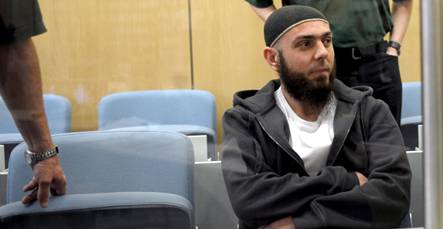The 30-year-old has already filled 50 pages by hand, the magazine reported.
Yilmaz, a Turkish national, suggested writing a book together with co-defendant, Daniel Schneider, a German convert to Islam. The two are currently on trial in Düsseldorf with two other suspects, Fritz Gelowicz and Attila Selek for allegedly planning to car-bomb US facilities in Germany and nightclubs popular with Americans.
Prosecutors say the group are Islamic radicals who were inspired by the September 11th, 2001 terror attacks against the US.
Schneider reportedly approves of the memoir idea, writing in a note to Yilmaz seen by Der Spiegel that there are things about the attempted bombing plot that need to be “clarified.”
One possible problem with a memoir, Schneider pointed out, is that three of the four suspects on trial have had their assets frozen as international terrorism suspects, which could also put a book deal on ice.
“The contract has to be done by someone else, who has to control everything, including the money,” Schneider wrote. “The trial has already cost the state €500,000 and if they get the sense that any of us has any money, then they’ll also take it from us.”
Authorities believe the men planned bombings between early September 2007 and mid-October 2007, when the German parliament was to vote to extend participation in the NATO peacekeeping force in Afghanistan. They were arrested in September 2007.




 Please whitelist us to continue reading.
Please whitelist us to continue reading.
Member comments